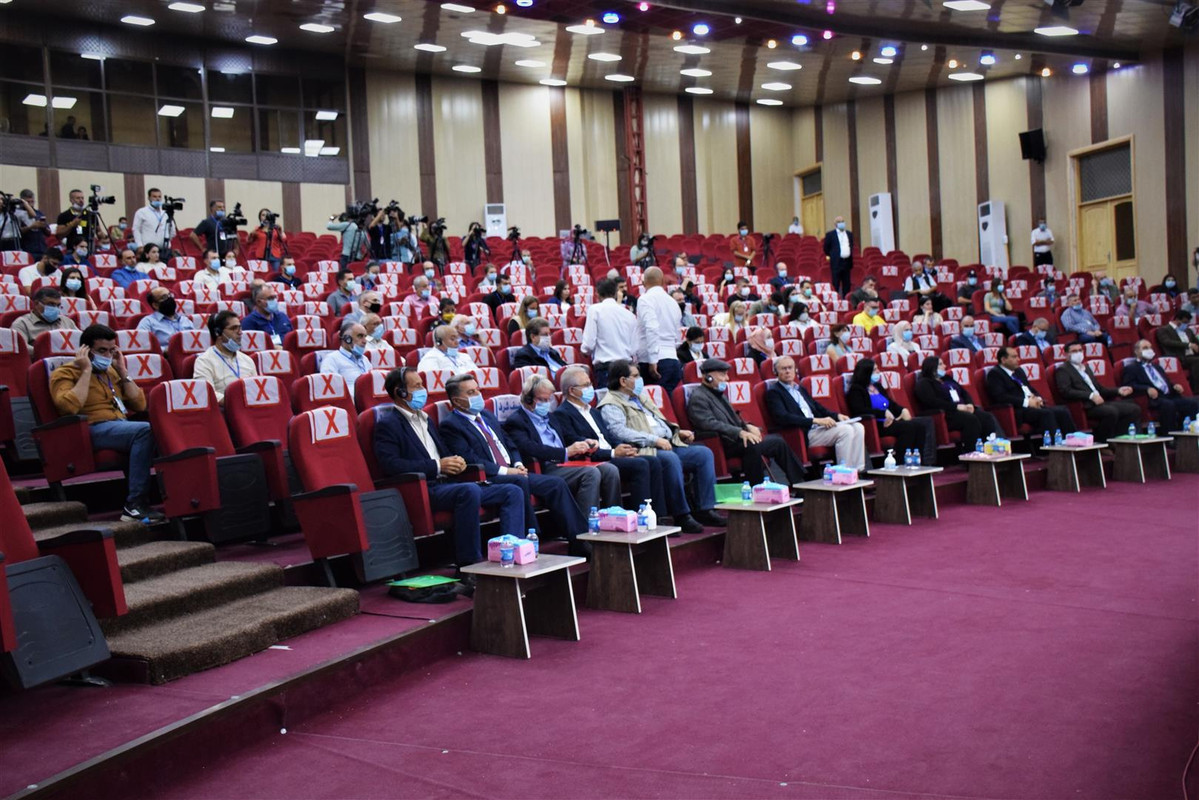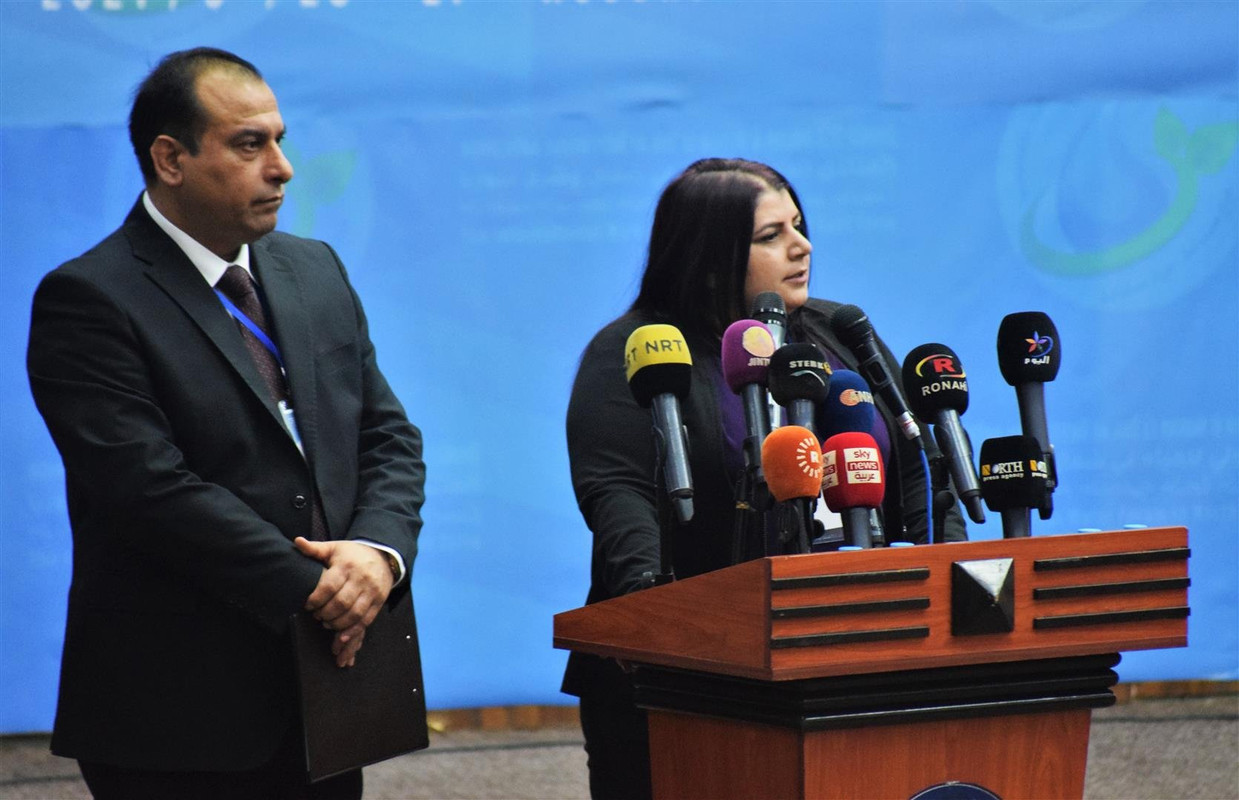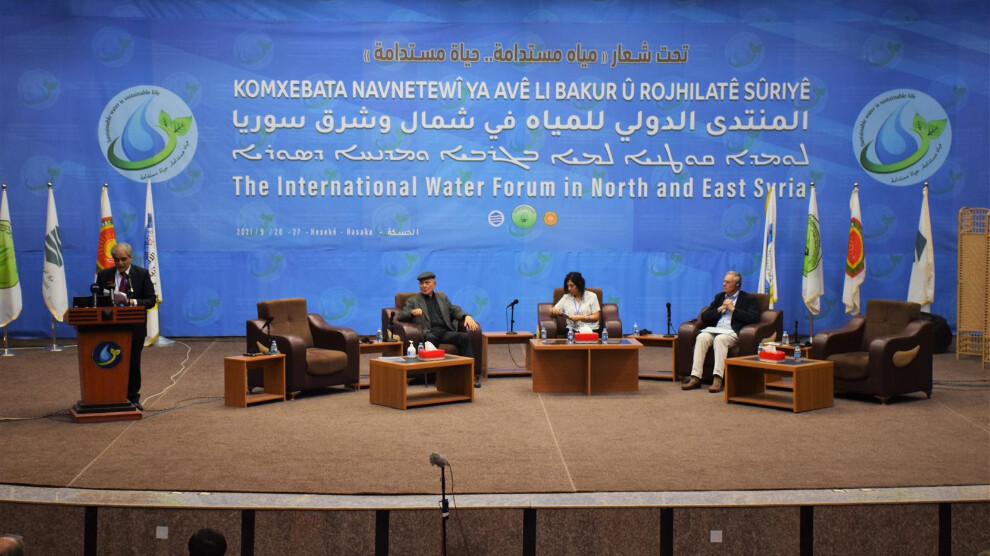The International Water Forum in North and East Syria has opened in Heseke city earlier today. It discusses the decrease in water resources in the world and the effects of state policies on access to water, among other issues.
The forum is organized by the Local Administrations and Environment Committee and will last two days in two different places, the Rojava University Conference Hall and the Fırat Research Center.
According to the organizing committee, the aim of the workshop is to draw attention to international law and states' use of water as a tool of war. At the same time, the role of water in national security and its contribution to the development of the region will be discussed.

The forum of course also discusses the crimes committed by the invading Turkish state which uses water as a tool of war, thus damaging both the economy and the environment of the region.
As it is known, the Turkish state aims at forcing people of the region to leave their lands by preventing them from having access to water. Experts will discuss and seek a solution to the water problem in North and East Syria, said the organisers of the forum.
In the first session of the forum, the participants discussed four main topics; rivers, international rivers, economic and political dimensions of the water crisis in the region and international agreements.
Sileman İlyas, Director of Euphrates Research Center, International Law Teacher Mehmud Batil and Zozan İbrahim, co-chair of Geneva Call Organisation, spoke in the first session.

The speakers recalled the international agreement on the Euphrates and Tigris Rivers, which was signed by Syria, Turkey and Iraq, and stressed that the Turkish state disregards the agreement for the sake of its political interests.
Speakers indicated various international agreements on water sources and recalled that the Helsinki agreement settled the need to share water and the right of people to benefit from the waters flowing in multiple countries. They noted that due to dams built by the Turkish state on the Euphrates and Tigris Rivers, Syria and Iraq cannot benefit from these rivers.
In the world, 45 countries share water pools, and there have been contradictions about these sources as well, the speakers underlined, and stressed that no state has the right to control water for its own political benefits.
Recalling the principles of the United Nations on sharing of water and the right to benefit from international agreements, the speakers said that the practices of the Turkish state targeting the people of North-East Syria should be prevented.
Berivan Xalid and Ebid Hamid El-Mihbaş, co-chairs of the Autonomous Administration of North and East Syria Executive Council, who attended the forum today, underlined that the Turkish state uses water as a means of war against the Syrian people.
The co-chairs stated that the invading Turkish state and its gangs have cut off the waters of the Euphrates and Tigris rivers and Allouk Station that supplies water for Heseke, causing a water crisis in the region.

Indicating that peoples in the region have made various achievements in the Syrian revolution, the co-chairs defined the Autonomous Administration established in 2014 as a product of these achievements. They stressed that the resistance continues despite all the external intervention, pressure and crisis.
The Autonomous Administration has overcome all crises despite all obstructions, and it currently faces a water crisis due to the invading Turkish state using water as a weapon against local people, said co-chairs, adding that the international community continues to remain silent against the Turkish state’s reduction of the Euphrates water.
The co-chairs emphasized that the Turkish state resorts to all kinds of war methods against North and East Syria through military and political means, and most recently water, and thousands of civilians have been forced to migrate. They wished for lasting solutions against all the problems of local people and for the invading Turkish state’s crimes to be stopped.
Berivan Xalid and Ebid Hamid El-Mihbaş pointed out that the invading Turkish state fails to comply with all the agreements that have been made on sharing of the Euphrates River’s water. They remarked that this situation adversely affects the whole Syria, especially North and East Syria, as people in the region earn their living by agriculture.
The water war waged by the invading Turkish state affects 5 million people in North and East Syria, and the invading state is responsible for all disasters, underlined co-chairs, and called on the United Nation (UN), the anti-ISIS International Coalition and human rights organisations to put pressure on the Turkish state.
Bernard Kouchner, former French Minister of External Affairs, and Patrice Franceschi, a French writer and expert on Kurdish matters also attended the international forum today.

Bernard Kouchner and Patrice Franceschi stated that they attended the workshop for the purpose of closely following the crisis caused by the Turkish state in North and East Syria and discussing the solutions to prevent a possible humanitarian crisis in the region.
French attendants pointed out the water war waged against Syrian people as well as various war methods in military, political, ideological, scientific and social terms in North and East Syria.
Indicating that the Turkish state uses the water sources in the region as a political weapon against the people of North and East Syria, Kouchner and Franceschi defined the water war as the most dangerous kind of war aiming to annihilate people by leaving them hungry and thirsty for the sake of political interests.
French attendants stressed the need to find necessary water sources for the region, to benefit from past experiences and to resort to political methods in order to stop the water war.

RELATED NEWS:




















